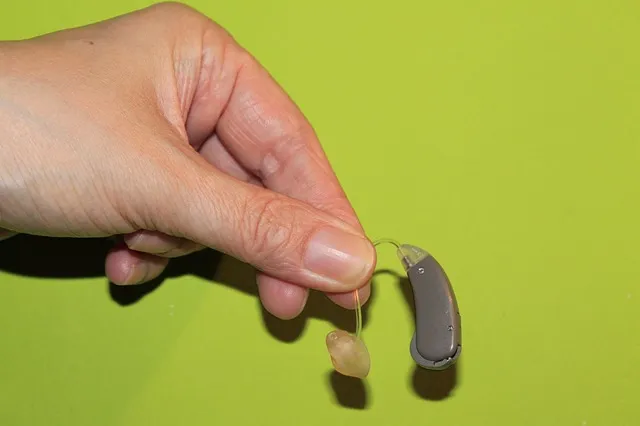Tinnitus is the sensation of a ringing noise in the ear. People experience a sort of a whistling or buzzing sound in their ear although there is no external source of sound. This sound comes from inside the ear in the form of clicking, roaring or hissing sounds that can be intermittent or continuous with varying degrees of loudness. These ringing noises ocassionally beat in sync with your heartbeat which is known as pulsatile tinnitus. The patients may experience the sound in one year or both the ears. This sound source can cause the sufferer depression, problems in concentrating or even anxiety among other psychological disorders. Now, let us delve deeper into types of tinnitus, tinnitus symptoms, causes and tinnitus treatment.
Tinnitus Types
- Subjective tinnitus - this the most common type of tinnitus wherein only the patient can experience these noises.
-
Objective tinnitus - this type can be heard by somebody who is examining the patient. The occurrence is very uncommon and is generally caused due to a variety of physical factors like, blood vessels related abnormalities and spasm in the muscle ears.
- Pulsatile tinnitus - in this type people experience a sound that beats in sync with their pulse. Pulsatile tinnitus is usually objective in nature, resulting from altered blood flow, increased blood turbulence near the ear (such as from atherosclerosis, venous hum, or it can also arise as a subjective phenomenon from an increased awareness of blood flow in the ear.
Also Read: How to use Essential oils for ear infection?
The true tinnitus definition does not come in the category of diseases. It should not be mistaken that, tinnitus is not a disease but a symptom which can result due to a number of underlying causes. Tinnitus treatment should be undertaken as it may worsen with age.
If you facing this problem, visit an ENT Doctor as soon as possible. Need help in finding a doctor? Click here to find the Best ENT Specialist in India.
Tinnitus Causes
One of the most common causes of tinnitus is continuous and prolonged exposure to extremely loud noises. Large chunk of patients suffering from tinnitus have had some levels of hearing loss due to high levels of noise. The noise also causes permanent ear damage to the cells of cochlea (a spiral shaped organ presents in the inner ear), which are extremely sensitive to sound. People working as pilots, carpenters, street repair workers and rock musicians are generally among the most who's jobs put them at a risk of suffering from tinnitus.
Other causes of Tinnitus
A variety of other illnesses and conditions which can cause tinnitus are:
- Ear blockages that is caused due to a build-up of excessive ear wax, infection in the ear, benign nerve tumour which makes the auditory nerve audible for the patient.
- Heart diseases and problems
- Drugs like, aspirin, antibiotics and anti-inflammatory medicines have been listed as one of the causes for tinnitus.
- Meniere's disease which adversely effects the inner part of the ear causing tinnitus
- The ageing process of an individual causes the cochlea along with the other parts of the ear to deteriorate.
- An ear disease known as otosclerosis which results in the stiffening of the small bones in the mid ear region.
- Medical conditions like, cardiovascular disease, allergies, high blood pressure, anemia, diabetes and autoimmune diseases.
- Problems related to neck or jaws known as temporomandibular joint syndrome.
- Head or neck injuries may also result in tinnitus.
- On consumption of excessive alcohol, smokes, caffeinated beverages or eat certain types of foods
- Eustachian tube problem (mid ear related problems)
- Tinnitus is the brain's way of filling the gap when it hears some missing sound in the frequencies that it no longer receives from its own auditory system.
(Ringing in the Ear) Tinnitus Treatment
Tinnitus is diagnosed based on the patient's descriptions of the ringing sound he hears. The patient may first undergo a questionnaire that helps to express how severe is his/her tinnitus problem to the doctor. Tinnitus treatment begins with an audiogram and a neurological examination.
While there is no cure for tinnitus treatment, most people get used to it over time as for a minority, it remains a significant problem. However, if there is an underlying cause, treating it may lead to improvements. Otherwise, the primary treatment for tinnitus is talk therapy and sound therapy; there are no effective medications
It is highly advisable to treat your tinnitus symptoms and undertake proper tinnitus treatment before the problem gets worse. If it has been found that your tinnitus is caused due to external forces (like loud noises) you're your doctor will suggest various non-medical options that may help in make the situation a lot better for you.
Also, read about: What is Filariasis and Recovery after CABG.
Based on the cause of the problem, tinnitus treatment is undertaken:
- If the cause of tinnitus is excessive ear wax the doctor will then your doctor will do a procedure of ear wax cleaning through suction method with the help of a small curved instrument known as curette or they can also flush the wax out through warm water.
- If the cause of tinnitus is a result of temporomandibular joint syndrome the doctor will most likely refer to an orthodontist or some other dental specialist for a more accurate treatment route.
- If the cause of tinnitus is an ear infection the doctor will prescribe ear drops (containing hydrocortisone) in order to help the relieve the problem of itching along with acting as an antibiotic (which fights infection).
- If the cause of tinnitus is an abnormal growth i.e. tumour or cyst the doctor will have to undertake a surgery.
Also Read: Fluttering In Ear: Causes And Remedies

Reviewed by







